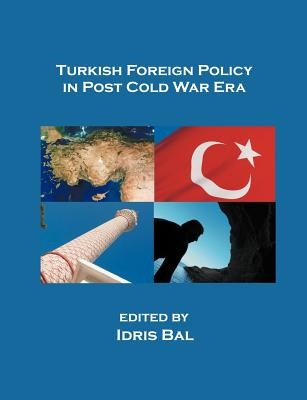
- We will send in 10–14 business days.
- Publisher: Brown Walker Press (FL)
- Year: 2004
- Pages: 476
- ISBN-10: 1581124236
- ISBN-13: 9781581124231
- Format: 18.9 x 24.6 x 2.4 cm, minkšti viršeliai
- Language: English
- SAVE -10% with code: EXTRA
Turkish Foreign Policy in Post Cold War Era (e-book) (used book) | bookbook.eu
Reviews
Description
With the end of Cold War discipline the world has entered a new era. Parameters have changed; new handicaps as well as new opportunities have been created for countries. Turkey as a neighbor of former USSR, a member of NATO and located at the center of a sensitive region covered by Caucasus, Balkans and Middle East, has been affected by the end of Cold War radically. Turkey has lost some of her bargaining cards in the new era and therefore has needed new arguments. This need encouraged Turkey to take active steps in Post Cold War era. This book analyzes Turkey s relations with US, EU, Balkans, Middle East, Caucasus, Central Asia, Russia, China and Japan. At the same time, effects of economic crises and domestic developments on foreign policy, Turkish model in Turkish foreign policy, water conflict and Kurdish problem are analyzed as well. To conclude, it is possible to argue that although Turkey lost some of her bargaining cards in Post Cold War era, new developments pushed Turkey to the center of world politics rather then to periphery. Contributors: Meliha Benli Altunisik, Deniz Ãlke Aribogan, Hüseyin Bagci, Idris Bal, Zeyno Baran, Fulya Kip Barnard, Erol Bulut, Ibrahim S. Canbolat, Saziye Gazioglu, Ramazan Gözen, Saban Kardas, H. Bülent Olcay, Cengiz Okman, Henry E. Paniev, Victor Panin, Dirk Rochtus, Faruk Sönmezoglu, Gül Turan, Ilter Turan, Mustafa Türkes, Nasuh Uslu.
EXTRA 10 % discount with code: EXTRA
The promotion ends in 22d.03:22:10
The discount code is valid when purchasing from 10 €. Discounts do not stack.
- Publisher: Brown Walker Press (FL)
- Year: 2004
- Pages: 476
- ISBN-10: 1581124236
- ISBN-13: 9781581124231
- Format: 18.9 x 24.6 x 2.4 cm, minkšti viršeliai
- Language: English English
With the end of Cold War discipline the world has entered a new era. Parameters have changed; new handicaps as well as new opportunities have been created for countries. Turkey as a neighbor of former USSR, a member of NATO and located at the center of a sensitive region covered by Caucasus, Balkans and Middle East, has been affected by the end of Cold War radically. Turkey has lost some of her bargaining cards in the new era and therefore has needed new arguments. This need encouraged Turkey to take active steps in Post Cold War era. This book analyzes Turkey s relations with US, EU, Balkans, Middle East, Caucasus, Central Asia, Russia, China and Japan. At the same time, effects of economic crises and domestic developments on foreign policy, Turkish model in Turkish foreign policy, water conflict and Kurdish problem are analyzed as well. To conclude, it is possible to argue that although Turkey lost some of her bargaining cards in Post Cold War era, new developments pushed Turkey to the center of world politics rather then to periphery. Contributors: Meliha Benli Altunisik, Deniz Ãlke Aribogan, Hüseyin Bagci, Idris Bal, Zeyno Baran, Fulya Kip Barnard, Erol Bulut, Ibrahim S. Canbolat, Saziye Gazioglu, Ramazan Gözen, Saban Kardas, H. Bülent Olcay, Cengiz Okman, Henry E. Paniev, Victor Panin, Dirk Rochtus, Faruk Sönmezoglu, Gül Turan, Ilter Turan, Mustafa Türkes, Nasuh Uslu.


Reviews